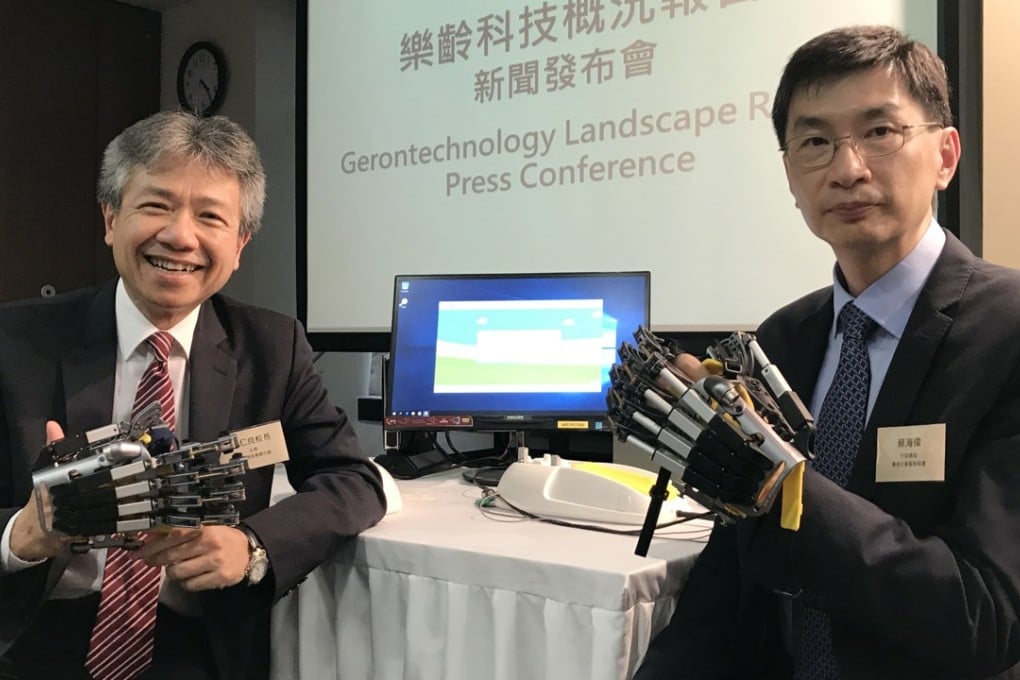Tech products for elderly not getting enough support in Hong Kong, study finds
Results come ahead of city’s first Gerontech and Innovation Expo cum Summit

Not enough is being done to support the use of technological products for the elderly in Hong Kong, the city’s first landscape study on gerontechnology – the scientific field combining the study of ageing and technology – has found.
The findings come ahead of this upcoming weekend’s Gerontech and Innovation Expo cum Summit, the first of its kind in the city. The event aims to raise public awareness on technological intervention for elderly care.
The study, funded by the government’s Social Innovation and Entrepreneurship Development Fund, reviewed 72 products and services which could be widely used by Hong Kong’s elderly. It also identified 24 reasons why gerontechnological products have not been widely adopted here.
Watch: Stair climber demonstration
Those obstacles included lack of public awareness of the role of technology in elderly care, insufficient funding for local start-ups, weak collaboration between different stakeholders and lack of testing grounds for new products.
“Our start of using technological products for elderly services in Hong Kong was slower than in other countries,” said Chua Ho-wai, chief executive of the Hong Kong Council of Social Service, which jointly conducted the study with Our Hong Kong Foundation.